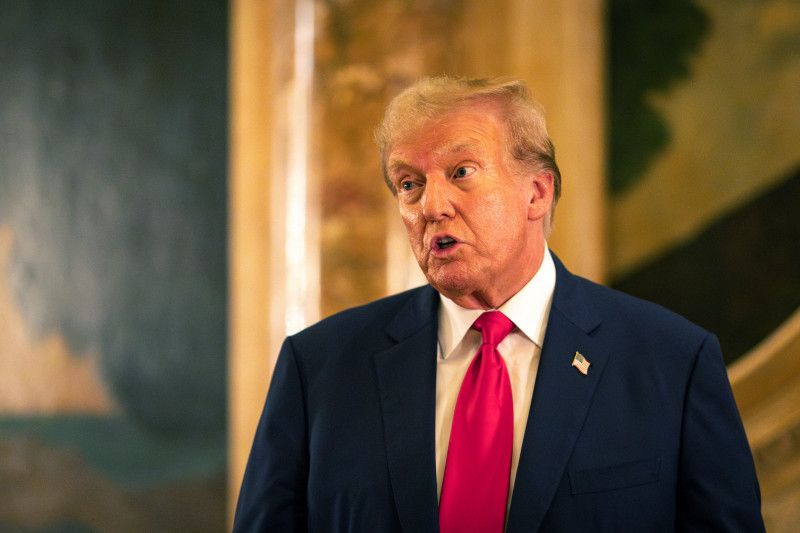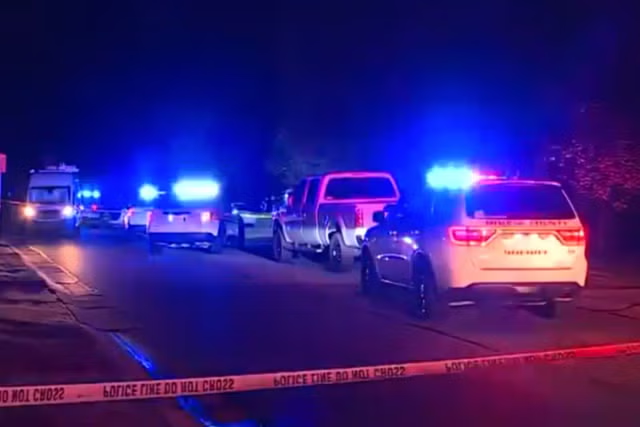Support truly
independent journalism
Support Now
Our mission is to deliver unbiased, fact-based reporting that holds power to account and exposes the truth.
Whether $5 or $50, every contribution counts.
Support us to deliver journalism without an agenda.

Louise Thomas
Editor
The judge presiding over Donald Trump’s classified documents case has handed him yet another win as she has agreed to consider hearing arguments that the criminal charges should be dropped based on the Supreme Court’s ruling on presidential “immunity.”
In an order filed on Saturday, Trump-appointed Judge Aileen Cannon said she was temporarily granting Trump’s motion to stay proceedings, pushing back several filing deadlines in a case that has already been plagued by delays and is yet to have a trial date.
Judge Cannon is setting a two-week timeline for prosecutors and Trump’s attorneys to file briefs arguing whether there should be more hearings on “immunity” in the case.
The order came just hours after Trump’s attorneys filed a motion on Friday asking the judge to pause his classified documents case for several months so that he could argue for the charges to be tossed under the immunity ruling.
In a separate filing, the former president’s attorneys pointed to an opinion from Justice Clarence Thomas, who appeared to agree with Trump’s argument that special counsel Jack Smith was unconstitutionally appointed and funded — a claim at the center of Trump’s attempts dismiss the case.
Trump’s attorneys argued that Thomas’s argument “adds force” to Trump’s claim that Smith’s appointment and funding is unconstitutional and raises “grave separation-of-powers concerns.”
Friday’s filings in the Mar-a-Lago case arrived just days after the Supreme Court declared that no president can be criminally prosecuted for any “official” act in the executive office, likely granting the former president some protection in his federal election interference case.

Thomas wrote his own separate concurring opinion in the immunity decision to specifically take aim at the special counsel’s office, days after Trump’s attorneys made the same arguments to Judge Cannon in Florida.
The conservative justice went so far as to say that the federal judge overseeing Trump’s election interference case should reconsider whether Smith was even lawfully appointed to the job, giving Trump and the judge presiding over Trump’s classified documents case more legal ammunition in his favor.
“If this unprecedented prosecution is to proceed, it must be conducted by someone duly authorized to do so by the American people,” Justice Thomas wrote.
“The lower courts should thus answer these essential questions concerning the Special Counsel’s appointment before proceeding.”
Now, following Judge Cannon’s Saturday order, Smith’s office has until July 18 to respond to Trump’s motion on the issue of the immunity ruling.
The shocking decision on “immunity” from the nation’s high court has already been used to scramble Trump’s sentencing in New York, where a jury in May convicted him on all 34 counts of falsifying business records.

This week, Justice Juan Merchan agreed to delay his sentencing date by two months, giving Trump’s attorneys time to try and make their case that the verdict should be voided.
That case explicitly deals with Trump’s private actions, largely before he entered the White House, but some evidence from prosecutors — including conversations at the White House and testimony about his actions as president — could be off-limits, according to his attorneys.
Trump was scheduled to be sentenced on July 11. After the “immunity” decision, and pleas from Trump’s legal team, Judge Merchan postponed the sentencing date to September 18.
Trump faces 40 separate charges stemming from allegations that he withheld hundreds of classified documents after leaving the White House for his private Mar-a-Lago compound in Florida, then conspired to obstruct government attempts to retrieve them.
He has pleaded not guilty.
Disclaimer: The copyright of this article belongs to the original author. Reposting this article is solely for the purpose of information dissemination and does not constitute any investment advice. If there is any infringement, please contact us immediately. We will make corrections or deletions as necessary. Thank you.



